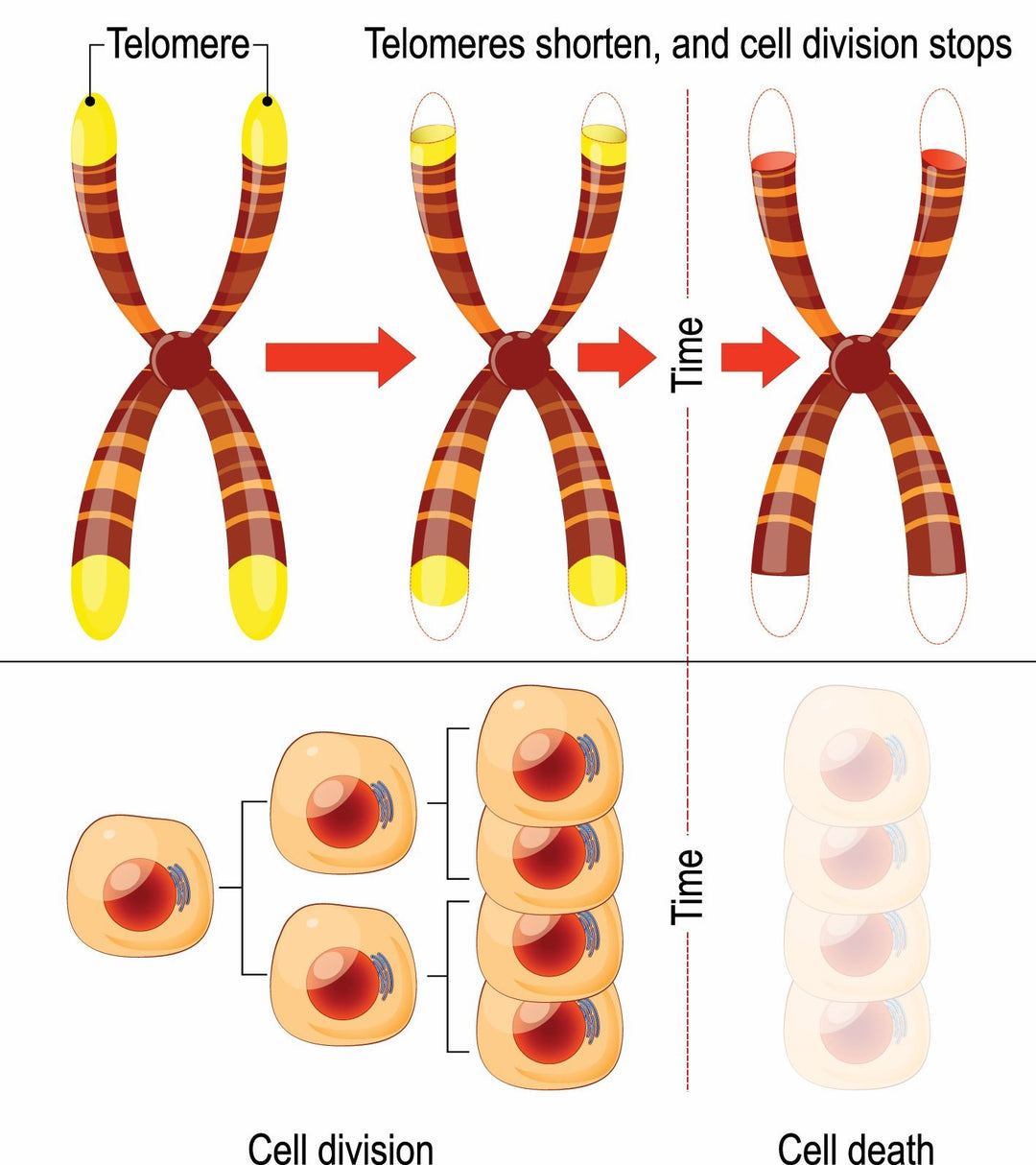Telomeres, the protective caps at the ends of chromosomes, are integral to the ageing process and longevity. With each cell division, telomeres naturally shorten, acting as a kind of molecular clock that tracks the number of times a cell can replicate. As telomeres reach a critically short length, cells may enter a state of senescence or undergo apoptosis (programmed cell death), contributing to ageing and age-related diseases.
Maintaining longer telomeres is often associated with increased longevity and better overall health. Strategies that support telomere length maintenance include adopting a healthy lifestyle with regular exercise, a balanced diet, and stress management. Additionally, the enzyme telomerase can elongate telomeres, potentially slowing down the ageing process. Examples for substances associated with telomere support are: Fish Oil/Omega-3 Fatty Acids, Antioxidants, Vitamin D, Astragalus Root and Epigallocatechin Gallate (EGCG).
Telomeres
are protective caps at the ends of chromosomes that prevent them from fraying or sticking together, much like the plastic tips at the end of shoelaces. As cells divide, telomeres naturally shorten, serving as a biological clock that tracks the number of divisions a cell can undergo, influencing cellular lifespan and ageing processes.





